
The first lady of slide-blues is back with a new album that blasts politicians and laments lost love. “I wanted to write,” she tells us, “about how pissed off I was…”
It’s funny,” drawls Bonnie Raitt. “I’m reading a book someone sent me called A History Of The Redhead. It’s amazing how many stereotypes there are about women with red hair throughout history. Y’know, we’re either supposed to be especially sexual, or fiery- tempered, or fallen women. Maybe it’s a self- fulfilling thing that when you have red hair, you know you’re a little bit different. I don’t know many redheads that are shy and retiring. But I just happen to be an extrovert anyway.”
Whether or not you put it down to Raitt’s familiar tumble of russet curls – with a single grey strip to hint at harder times – there’s no doubt she can talk. Today, the bandleader phones direct from California – there’s no press flunkey to connect or curtail us – and rattles away with the energy of an artist at the start of a promotional cycle. “These are my first interviews,” she says.
“The first time I’ve talked about the new album. So I guess it’s a reality.”
Everybody should have a friend like Bonnie Raitt. Witty, wise and well-informed, she’s opinionated without coming off as preachy, political without getting up your nose. I wouldn’t be the first bluesman to fall under her spell. In the 45 years since her self-titled debut, Raitt has slipped across divides of race, gender, age and culture, charming everyone from the post-war heavies (Muddy, Wolf, Hooker) to the MTV-era hotshots (Cray, SRV). “They were all surprised to see this little white girl from LA – the daughter of a Broadway singer – play guitar like that,” she hoots of her 70s breakout.
Woe betide anyone, though, who wanders into Raitt’s cross-hairs. Hints of that redhead temper are all over her 20th studio album, Dig In Deep, whose moments of personal heartbreak are offset by cranked-up attacks on the politicians hobbling modern America. “I’m a full human being with a strong set of ethics,” she says. “There are things I think are right. There are ways I think we can fight to improve the way we are on the earth, how we deal with each other. I’ve never pulled any punches about that.”
Beyond the music, Raitt is a ferocious social activist, going out to bat for causes from deforestation to women’s rights. “Y’know, we support over a hundred different groups with our tour profits,” she says, “and a dollar of all the tickets goes to a variety of different groups, from music education and social justice to election reform and safe energy. I do a lot of No Nukes and environmental work. I’ve probably ended up being a more effective activist as a musician than I could have been as a social worker.”
After several million album sales and 10 Grammy awards, it seems that Raitt at 66 isn’t so different from the arty teenager who had philanthropy drummed into her back in 50s Los Angeles. “I got a head start,” she recalls, “because I was raised Quaker, so we were involved in the peace movement since I was a kid. The civil rights movement was big in our family. We were big supporters of the fight for justice, the fight for peace and for banning the bomb. By the time I got to college [in the late 60s], I’d already been involved in a lot of different protests.”
While majoring in Social Relations and African Studies at Harvard, Massachusetts, Raitt pushed her way to the front line. “It was all part of being a student,” she reflects. “Vietnam was hot and heavy, all the way from ’65 on, and there was the civil rights movement that had dovetailed into the peace movement. Across the country, everybody was mobilising to end the war, get out of Vietnam. Every city and college campus was full of people protesting.”
Did those demos ever get rough?
“Well, not like it was for the freedom marchers in the south that got beat up. We didn’t get shot down like at Kent State. That would have been very scary. I personally have never been part of a demonstration where the police were coming after me to beat me up. I got off easy.
“So the climate was extremely fertile,” she continues. “And the music scene was fantastic. There was a great blues and rock scene going on in the Boston area, and we were only a few hours from New York City. It was a good time to be at college. But I never expected to make music for a living. This was just a hobby for me. I was expecting to do social action work and community organising. That’s what I trained to do.”
Raitt had already made her first moves on a Stella guitar given to her at Christmas aged eight, and she’d swooned over the slide work from the Blues At Newport 1963 album as a teenager. Now her classes at Harvard were juggled with coffee-house gigs – until she left her course to step into destiny. “Luckily I didn’t need a band, so I could just play my guitar and still make enough money to support myself. I didn’t have to take gigs I didn’t want, and I wasn’t going to sign a record deal unless I had total artistic control. I was lucky to have grown up in show business, where I got to see people get ripped off. I said, ‘I’m only gonna open for people that I would pay money to go see.’ So I got to meet some of my blues heroes. And I didn’t have to get a regular job, which delighted me.”
The list of heavyweights Raitt supported in those years reads like a hall of fame. Muddy Waters. Howlin’ Wolf. John Lee Hooker. Son House. Mississippi Fred McDowell. Sippie Wallace. What were they really like?
“Well, I can’t pick a favourite,” she laughs. “It would be like picking your favourite kid. John Lee and Muddy, those two were as happy a version of a bluesman as you’ll ever meet. Muddy was just fantastic and dignified, very smart, a great sense of humour, really good to his band. Beloved for a reason, y’know? You can just see from the footage of him on stage what a great guy he was. I remember a lot of laughing. He drank champagne and he loved being on the road. We toured for many years, until he passed away.
“John Lee was so intimidating on stage but such a sweetheart off stage. They were both so delighted to be revered by a younger generation. Y’know, we had Motown, Stax, Atlantic and all the great soul music coming out of America, but in terms of really appreciating Chicago blues, Detroit blues, Texas blues, it was Eric Clapton, the Stones, people like that. Once people got that blues bug, it was just a fantastic opportunity to give somebody like Muddy and John Lee all the recognition they had been long deserving.
“To this day,” she continues, “it’s still one of the greatest gifts of my life to have been friends with them. Touring with Sippie Wallace was like having the most wonderful grandmother. She taught me so much about keeping your dignity and sense of humour. She taught me about men, about marriage, about the blues. It was great to have an adopted family like that.
“They taught me how cool it was to get older, and not to be worried about it. Now I’m at the age they were, so I can understand why they had that sense of confidence. Y’know, you don’t really care what people think. You take it with a grain of salt. You don’t put up with guff. You have a certain bemusement. Here I am at 66 and I feel like I’ve got the same attitude.”
You really caught that last wave of original bluesmen, didn’t you?
“I did. There’s people still around that remember, like Eric [Clapton]. But it’s getting less and less all the time. A lot of wonderful blues friends from my generation of younger white kids have passed on. It’s the same way with our parents and friends. As you get older, that’s the big heartbreak, that people are passing away in greater frequency. It’s just one of those things you learn to deal with – and that’s another source of blues.”
As for the studio, Raitt opened her account with 1971’s Bonnie Raitt: mostly a covers album, though already fuel-injected by that punchy slide style. “I still get a big kick out of it,” she reflects. “I don’t listen to myself, but every once in a while, if I’m doing a radio special or something, someone will play a song from that first album and I’ll just smile and remember. It cracks me up to think how tough I was trying to sound.
“I kinda took the lead from other people who looked like they were running their careers with integrity and smarts,” she adds of her early steps in the industry. “I did what they did. I’m the first to tell you, I was incredibly lucky not to have to scrounge and struggle. Right off the bat, I got a record deal, without even expecting it, and I’m hoping I did right by covering a lot of great songwriters and getting them a little bit of exposure, and sharing the good fortune I had to make more than I need. I’m just trying to give it back because I know how lucky I am in this business.”
Raitt certainly made her mark through the two decades that followed – her run of nine albums scored three Grammy nominations – but it was 1989 that saw her achieve lift-off, thanks to the irresistible one-two of her own Nick Of Time album and her lusty duet with Hooker on I’m In The Mood, a highlight of his album The Healer.
“I’d known John Lee since I was 19, and it was wonderful that he was making this record with all of us youngsters, so to speak. When we cut that duet together, it was a really charged atmosphere. It’s one of my favourite songs and it’s quite erotic, and that’s not in the nature of our relationship. But I have to say, that was a really fun session – to play the roles of people that were really hot for each other!
“None of us expected it to do so well. Of course, we won the Grammy for the best blues duet, and I won a bunch of Grammys that night for Nick Of Time – and John Lee won for best blues album. I think it catapulted both of us into another level of success and opportunity.”
By 1991, Luck Of The Draw brought Raitt’s signature tune, I Can’t Make You Love Me, and multi-platinum sales. Did stardom suit you?
“Y’know, I was pretty used to being in the business. But it was lifted up to a level where I could maybe pay my band what they deserved and tour countries that weren’t that financially feasible. And it was a great forum to talk about rhythm and blues artists being ripped off, about No Nukes and all the different causes I was involved in. It gave me a great platform.
“It gave me financial security,” she adds, “so I could move to where I wanted to live. On the benefits side, y’know, the opportunity to have people open the show that I wanted to give a lift to. All the songwriters whose songs I did, they got to make some money and get a little bit more famous. So it was really a ripple effect. It upgraded everybody’s life. The downside is just that there was more scrutiny. That’s why I moved out of LA, just because I don’t like to be followed around or stared at or, y’know, people throwing stuff over the fence to see if I’d listen to their songs, that kind of stuff. You just have to be a little bit more savvy about keeping your privacy.”
It surely helped that before the superstar years, Raitt had already battled her demons, given the push to clean up in the late 80s after seeing friend and occasional collaborator Stevie Ray Vaughan emerge from rehab with his talent intact. “Well, he was one of the people who got sober – along with a slew of other friends – and that was crucial,” she remembers. “Y’know, he came out of rehab and just burned a hole in the sun the first night when he sat in with us. And I just went, ‘Well, there you go: there goes my last excuse.’ He was an inspiration, as were a bunch of other musicians. Y’know, that it didn’t mean you had to turn into some moany religious nut.”
Harder times returned around the release of 2005’s Souls Alike album: Raitt was left reeling by the quick-fire loss of her parents, her brother and a best friend. She stepped away from the studio for seven years and says she was surprised 2012’s comeback album Slipstream did so well.
“That album came after a lot of years of painful loss and illness, and so coming out into the sunshine again, it was wonderful to have that response. I mean, with all my records, I do the same number of interviews and work just as hard to find the songs. But every once in a while, there’ll be an album that just resonates with the press and public. The bottom line is, Slipstream was a particularly great batch of tunes. I mean, you can’t beat Bob Dylan, Joe Henry, Loudon Wainwright – they’re just great songwriters – and my friend Randall Bramblett who wrote Used To Rule The World. I got some of the best reviews I’ve had in a long time.”
Long-standing readers of The Blues will remember Slipstream receiving a glowing write-up in our inaugural issue. Have you ever had a bad one? “Y’know, I’ve been blessed with mostly having really good reviews over the years,” Raitt chuckles, “but the bad ones still sting. Sometimes they’re just inaccurate, like they’ll mess up the title of songs, or attribute them to have been written by somebody else, or they don’t bother to mention the band, or they just talk about what I’m wearing.
“But I put my heart and soul into every single record, every single gig. Every time I open my mouth and play, I really appreciate that people, somewhere on the other side, have chosen to listen to me. It’s like opening night every night. You gotta prove yourself to a different city every night. You can never coast.”
It was that same desire to satisfy her live crowd that sparked the original songs on Dig In Deep. “I was really wanting to play certain grooves that I wasn’t playing live,” she reasons, “so I custom-wrote the songs so I could add them to the set. One is that gospel song [What You’re Doin’ To Me]. I love playing piano – I don’t do it that often – and I wanted to write a song that would really let the band kick it. That was very deliberate. So I worked really hard. Y’know, I hadn’t written in a long time and each one of those grooves and topics are things I wanted to cover.”
In every sense, Dig In Deep is aptly titled. “The grooves are particularly deep, in my opinion,” says Raitt. “Y’know, the pockets my drummer and bass player get. So part of the title is a nod to digging in deep with the grooves. But then the double side is that some of the topics are pretty deep, especially the last song [The Ones We Couldn’t Be] and the ballads. As you sing many records’ worth of material, you have to dig deeper, otherwise you’re just gonna be mining the same exact topic, in the same way. I’ve already got a whole repertoire of really killer ballads. So every record is almost like peeling back an onion. Y’know, you gotta go a little bit deeper.”
So what are you singing about this time around?
“The problems of long-term relationships. The problems of regretting what you didn’t do. I didn’t think about it until afterwards, but there’s a lot of regret in those ballads. Those are all real emotions and I’m glad to give a voice to them. A lot of the songs are about being shuttered down. Like, What You’re Doin’ To Me is about having kinda given up on love and then when you least expect it, somebody comes in and blows the lid off it. And that’s very real, especially at this time of my life, and this age, with relationships that get stale.
“I mean, Unintended Consequence Of Love, I took from one of Jon Cleary’s song ideas. I ran with it, and he came out and played and sang on it. That song is where it’s like, ‘We don’t ever do anything other than butt heads. I mean, does anybody even remember why we got together?’ That kind of thing. Those are topics I see in my friends’ and family’s romantic relationships. It’s one of those things where you roll your eyes and go, ‘How are we gonna keep it together?’”
As you sing many records’ worth of material, you have to dig deeper, otherwise you’re just gonna be mining the same exact topic, in the same way
Among these, The Ones We Couldn’t Be is most poignant, with Raitt singing of ‘wrapping the dark around me’ over resigned piano chords. “That was very emotional for me to write and perform,” she admits. “I don’t know if I’ll be doing it live, but I’m really glad I was able to get it on the record. I think everybody understands that with relationships, at the time, it seems like it was the other person’s fault, but then you come to a realisation – sometimes months or years later – that you had a part in what made the relationship difficult. It’s just heartbreaking that you can’t make it work at the time. Sometimes you have the best intentions – either in your family or in your love relationships – and you wanted it to work, and you tried so hard, but you just weren’t the one the other person needed you to be.”
Are you comfortable being that open?
“I mean, even the ballads I wrote on the early records, they cut just as deep,” Raitt considers. “Pain is pain, y’know, and great blues and torch songs are always about something that is hopefully eloquently spoken and artfully delivered. The lyrics have to be really special. It has to be really deeply felt by me, whether I’m writing it or singing somebody else’s song. Y’know, I Can’t Make You Love Me, and that song Not Cause I Wanted To on the last record: that’s as close to the bone as you can get, in terms of regret and being broken-hearted about what you’re doing to somebody.”
Dig In Deep looks beyond Raitt’s romantic entanglements. Another standout original – The Comin’ Round Is Going Through – addresses a feckless politician blind to the struggle of the average American (‘From where you’re sitting,’ she demands in one couplet, ‘tell me how you think you can possibly know’). “I knew I wanted to do this kind of four-on-the-floor stomper, this real Stonesy guitar kind of thing. And I wanted to write a song about how pissed off I was, about money being in politics and how much lying and puffing up and no accounting for the truth goes on in our political process.
“I feel like with that song,” she continues, “the things I’m singing about exactly mirror how it feels to play it. I mean, the few songs I’ve written that are kind of rockers like that, they’re just so satisfying to play. There’s another one called Spit Of Love that I wrote about being jealous and about someone just being a lying sack of whatever. And sometimes when you write a seething rocker like that – especially playing slide guitar – you can turn your amp up and it sounds like you’re singing from hell. It’s fantastic.
“The Comin’ Round Is Going Through is not a polemic,” she explains, “so much as frustration that we don’t have the answers. That song is just about the political process in general. Both Democrats and Republicans have been at fault for the way that things are working – the change needs to happen on a fundamental level. So I’m just expressing my frustration. It’s healthy to get it out. I don’t have any solutions, but I’m definitely glad to have a rock’n’roll song I can play to express my ire. I’m hoping that other people will feel the same way when they hear it.”
The primary elections for the US Presidency start in February, of course. As a performer who used to bait George W Bush from the stage during his tenure, how do you feel about the potential candidates?
Raitt sighs. “Y’know, I think we’re all just disgusted with the level of clown activity and bombastic behaviour. The election process is just a joke, with Citizens United being okayed by the Supreme Court to allow any amount of money to be thrown into the race – with no accountability. I mean, China could be funding an entire campaign. Nobody cares where the money comes from, what the amount is, whether anyone is telling the truth in the ads. And the sheer length of the campaign is just ludicrous.
“I think we’ll all be very pleasantly surprised if anything that people promise goes through. As a progressive, I’m just horrified at the march to war, and non-campaign reform, and not making Wall Street accountable. So there’s a big laundry list, which is making [Democratic candidate] Bernie Sanders’ whole run, and the fact that he’s resonating so strongly with people on our side of the political spectrum is really exciting. I’m really glad he’s got this far.”
Is there a national mood in America right now?
“There are a lot of grass-roots groups working really hard, making a huge difference in healthcare and nutrition, saving the environment and stopping plastic pollution. On a whole host of issues, whether it’s fracking, fossil fuels, or big wind and solar, there are people that are fighting for the solution. I think the human and environmental cost of climate change is becoming more apparent, and the climate change deniers are just having to shake their heads and say, ‘I guess all these extreme weather events are not coincidental.’ So the more that people come around to that idea, the more they’ll be able to focus on solutions. There’s a lot of reason for hope – and a lot of dismay about the broken political process. They’re both in the cycle.”
Do you think that prominent artists have a duty to speak out on current affairs?
“Oh, it’s a personal choice. When people ask me, ‘What gives you the right to speak?’ I always answer, ‘I’m a citizen of the planet, I’m a citizen of my country, and if I see something that I think is wrong and unjust and wrong-headed, then it’s my obligation as part of a democracy to speak out.’ But I think you have to be very responsible about where and when you speak out, otherwise you turn people off. I mean, people come to a concert to hear you sing. If it’s a benefit for a certain cause then you can make a certain speech, but you have to be really careful about trying to shove your point of view down your fans’ throats.”
Does it frustrate you that new artists don’t bother with protest songs?
“I don’t judge other people. I think, because there was a draft during the Vietnam war, there was a lot more of a personal stake with people speaking out. But there’s still a lot of activist musicians. I mean, the big Global Citizen concert that Jay Z and Beyoncé just hosted in New York – that was a huge effort. There’s a lot of actors, musicians and artists that have been calling out for everything from stopping the death penalty, to women’s rights, to election reform, and especially for safe energy. I think people are really working to get a solution in the Middle East. The internet is making it much more possible for people to get involved, and if they’re gonna make a donation, they can vet the organisation and look at their financials a lot more easily than we could in the 60s. In some ways, the opportunities to make a difference have never been more apparent. It’s just a matter of the press covering the activities.” But the bottom line here has to be: can music really make a difference?
Raitt nods emphatically. “The civil rights movement was in so many ways inspired by songs like We Shall Overcome and The Staple Singers. I just toured with Mavis Staples on 40 dates on the Slipstream tour. Every single night, she turned the audience into a gospel church, reinforcing the message that Dr King had. Bands like U2 and people like Jackson Browne: there are tremendous cultural resonances of music that is sung from speaking the truth. You just have to speak out about what’s important. So yeah, I think music can make a difference. Absolutely. I completely believe that.”
Buy Dig In Deep from Amazon. Visit www.bonnieraitt.com.


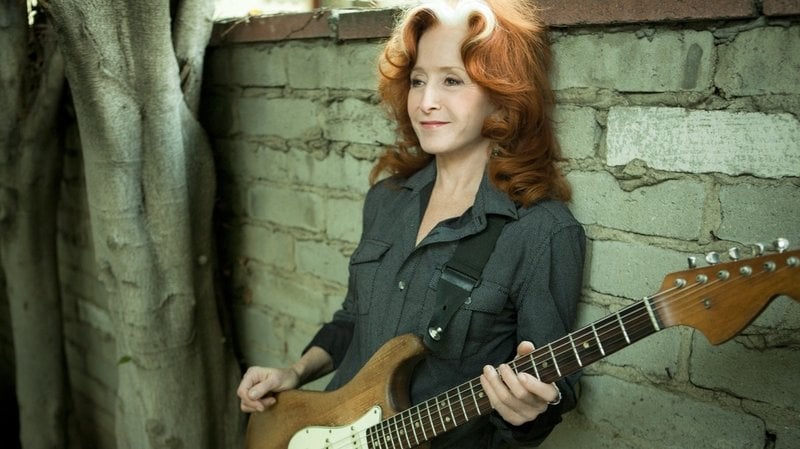
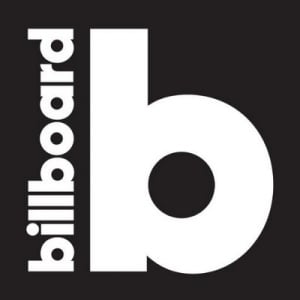
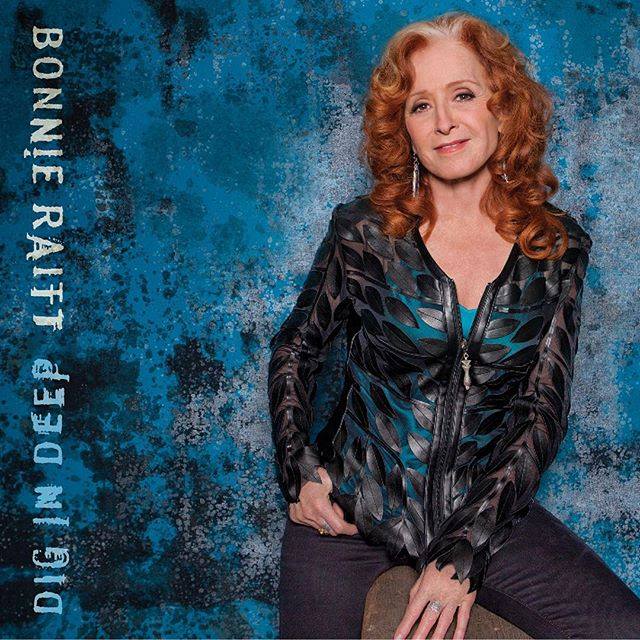
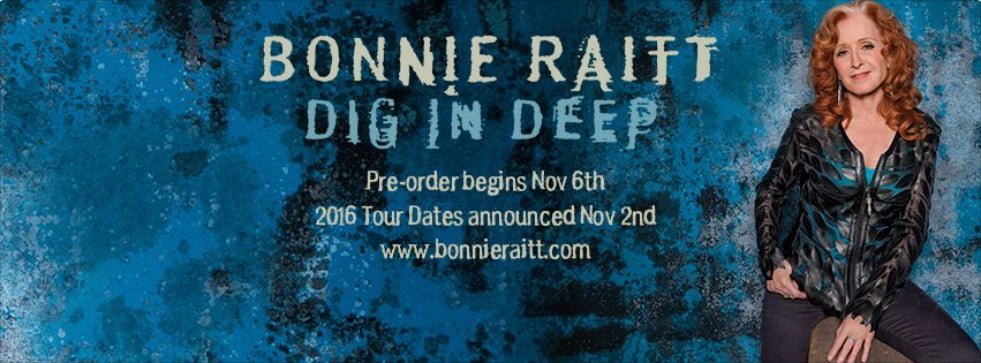


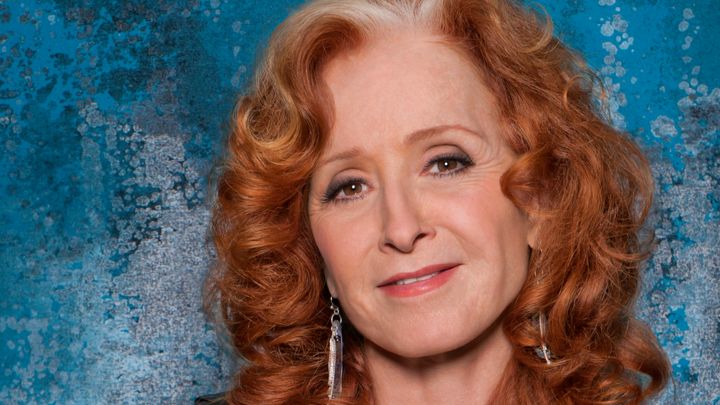
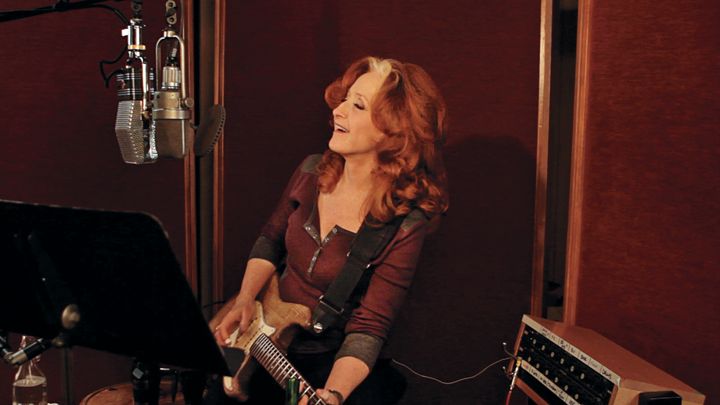







 Visitors Today : 1617
Visitors Today : 1617 Now Online : 2
Now Online : 2









































































































